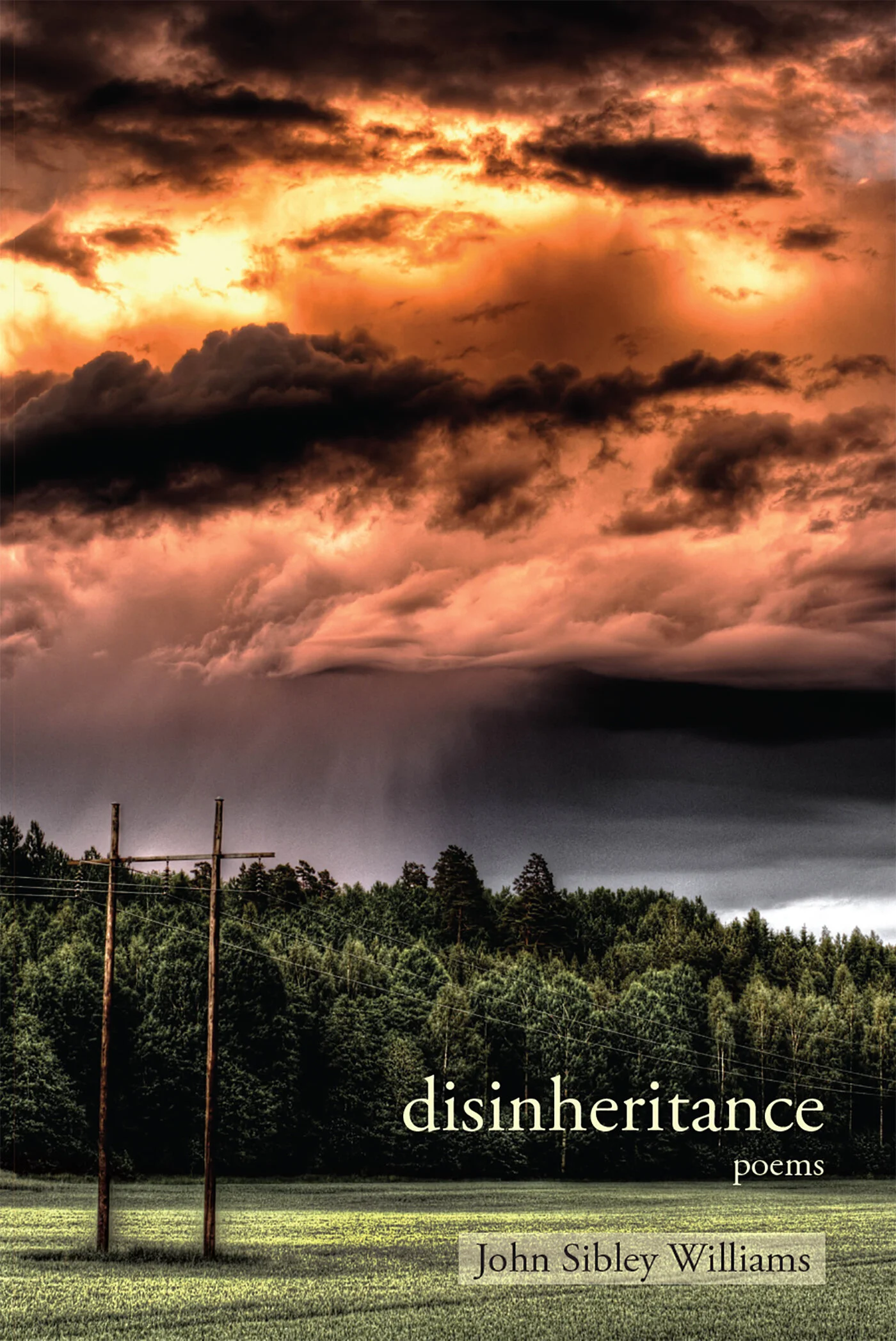In John Sibley William’s “amalgam of real /and fabled light” one is able to believe again in the lyric poem as beautiful—if difficult—proof of private space. As with families, histories, selves, Sibley writes: “we like to believe / what we make will save us.” Disinheritance contends intimately with loss, to be sure – but it also proposes the poem as a way to remember, to persist, to be oneself, to believe. And to persist when belief may not be possible within the bounds of the shores the seas impose upon us.
—Joan Naviyuk Kane
There is eternal longing in these poems of John Sibley Williams. A yearning for what cannot be understood. A song for what simply is. A distance beyond human measurement. The dead and alive dancing, hurting, and praying at the mouth of what must be the beginning of time. A series of profound losses giving birth to words no different from medicine.
—Zubair Ahmed
There is a hunger in these poems, one of an empty handed wise man who wants to sing. And sing he does. Here in an amalgam of real / and fabled light, stones ask questions of rivers, as the poet reaches toward the temporary holiness of knowing. These are mostly his words because how else can one speak of what the poem offers, but through the poem. Let these poems sing to you too. Let them hold you in that raw place of hope, let them be ships mooring us to the wild / bottomless sea.
—Daniela Elza
In John Sibley Williams’ moving, somber collection, the power of elegy, reverie, and threnody transcends the disinheritance caused by separation. These compellingly atemporal poems form the locus wherein generations of a family can gather. Here, Williams’ lyric proto-language—elemental, archetypal, primordial—subsumes barriers of time and space. His poems create their own inheritance.
—Paulann Petersen, Oregon Poet Laureate Emerita
“At once ambitious and enigmatic, these poems are charged with a mysterious energy bordering sometimes on the untranslatable”
— New York Journal of Books
“a powerful poet who proves, over and again, his poetry is an intense colloquy with death.”
— Washington Independent Review of Books
“a beautiful, moving collection”
— Tweetspeak
“Disinheritance contains passages of intense beauty. It is a self-portrait of a poet in grief, emotions rubbed raw by personal tragedy. It seeks to find the words for the times when words most fail us. Disinheritance can stand with the likes of “Death, be not proud” by John Donne and “Kaddish” by Allen Ginsberg.”
— Driftless Area Review
“Disinheritance investigates how poetry can both be made out of language and escape it. Like a snake eating itself, Williams’ lines often turn back on themselves, admitting that their bodies are made out of English while also refusing to be.”
— Cleaver Magazine
“…this best exemplifies the brilliance of Disinheritance. There is a universality and a balance. There is mourning and perseverance; assurance and uncertainty; a definite struggle and a possible resolution. ”
— Vallum: Contemporary Poetry
“an epic cannonade of grief that echoes with the howls of the bereaved and the callous innocent whispers of the dead. Reading it will wring your heart right out of your chest. Disinheritance is a pained pleasure, compelling as it is discomforting. This is wicked good writing.”
— Michael Dennis' Today Book of Poetry
“I got sad, I got optimistic, existential, on the prowl for potential, inspired to write.”
— Cirque Journal
“captures the universal sense of being born within this human body with all its limitations. ”
— Newfound
